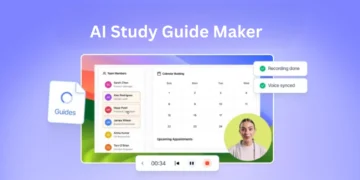Running a mental health practice — whether you’re a solo therapist, a group clinic, or a psychiatrist with multiple providers — involves more than seeing clients. You have to manage clinical documentation, progress notes, treatment plans, billing & claims, telehealth, scheduling, and compliance (HIPAA, etc.). A proper Electronic Health Record (EHR) built for mental/behavioral health helps you streamline all of this.
For example, many mental health practices cite:
- They need specialty templates (e.g., for therapy notes, DSM-5 diagnoses, outcome measures) rather than generic medical documentation. (medesk.net)
- They require telehealth and client portals, especially post-COVID. (medesk.net)
- They must ensure billing, insurance claim integration, and reporting (for revenue, outcomes) that fit behavioral health. (Attract Group)
- A solution that scales (from solo to group) and fits budget & workflow is key. (FindEMR)
So selecting the right EHR isn’t just “which software” — it’s matching your practice size, model, specialties, future growth, and budget.
✅ What to Look for in a Mental Health EHR
Before you pick a system, you should check for:
- Specialised templates & workflows for mental/behavioral health (treatment plans, progress notes, outcome measures) rather than generic medical templates. (medesk.net)
- Telehealth / client portal features built-in (video sessions, secure messaging) so it integrates smoothly. (Find My EMR)
- Billing & claims support, i.e., the EHR should help with insurance workflows, billing codes, etc. (Software Advice)
- Compliance and security — HIPAA, data encryption, audit logs, role-based access. (AdvancedMD)
- Scalability & pricing — The system should fit whether you’re a solo practitioner now with plans to grow, or already a multi-provider group. Also watch for hidden costs. (FindEMR)
- Support and training, good user experience. Many clinicians say that if the software is too clunky, they waste time or get frustrated. (Reddit)
🔝 Top EHR Software Options for Mental Health
Here are some of the leading options in the behavioural/mental health space, with what makes each stand out.
1) SimplePractice
- Designed for behavioural health and mental health practices. (FindEMR)
- Key features: scheduling, billing, telehealth, mobile access. (Find My EMR)
- Strength: Very good for solo or small practices; user-friendly.
- Consideration: As you scale or need more complex workflows maybe less flexible than larger systems.
2) TherapyNotes
- A widely used mental-health specific EHR. (Attract Group)
- Pros: Strong for documentation, progress notes, standardised workflows for therapy/counselling. (ehrinpractice.com)
- For practices: Good option if documentation and simplicity are priorities.
3) Valant EHR Suite
- Tailored for behavioral/mental health with outcome tracking, integrated billing, reports. (Attract Group)
- Best for mid-sized to larger practices with multi-provider and outcome-measurement needs.
4) Medesk
- Good for mental health specialists, noted in “top EHRs for psychiatry” lists. (medesk.net)
- Budget-friendly starting point (for smaller teams) but still with strong features for mental health.
5) NextGen Behavioral Health Suite
- Designed for more complex practices/outpatient/residential settings in behavioral health. (Find My EMR)
- Strong if you have multi-site or integrated services (addiction, IOP, etc).
💡 Which One Should You Pick?
Here’s a quick guide depending on your practice scenario:
- Solo therapist / small practice: SimplePractice or TherapyNotes – strong usability, moderate cost, less overhead.
- Growing practice (2-10 providers) with insurance billing & telehealth: Valant or Medesk may offer more scalability.
- Large clinic / multi-site / behavioral health program: NextGen or similarly robust systems with full features for workflows, outcome tracking, integrations.
- Make sure you demo the software, test your actual workflows (notes, billing, telehealth) — because what works in theory may feel cumbersome in day-to-day.
- Consider hidden costs: implementation, training, migrating data, customisation, user licensing.
- Check data portability: If you ever switch systems, can you export your data easily?
- Make sure you’re comfortable with support & service — many complaints come from poor onboarding, bad user interface, or slow customer service. (Reddit)
📌 Final Thoughts
Adopting a good EHR is not just a technological upgrade — it can dramatically improve your practice’s efficiency, documentation quality, billing/revenue, client satisfaction, and compliance. Especially in mental/behavioral health, where workflows differ from general medicine, picking a system tailored to your specialty makes a big difference.
Take your time: evaluate your current needs, your growth goals, your budget, and your team’s comfort with technology. Use free trials, speak to peers, ask for references. A well-chosen EHR becomes a backbone for your practice rather than a hurdle.
If you like, I can compare pricing and features in a table for 5-10 top EHRs specifically for mental health (so you can publish that as a blog post). Would you like me to pull that together?





























